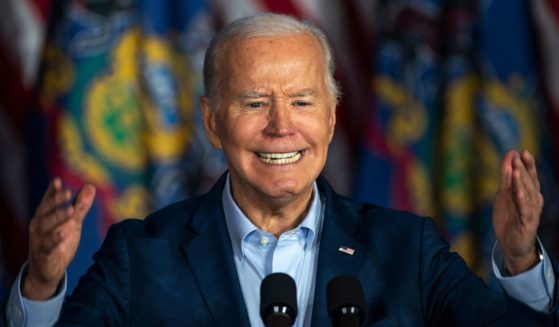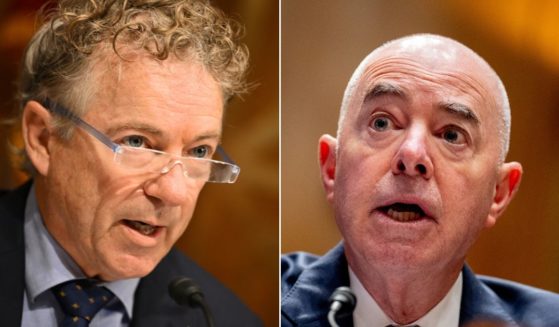Australian Officials Moving To Ban Literature Using Words 'Boy' or 'Girl'
Most parents have accepted, some with a fair bit of grumbling, that the days of “Dick and Jane” books in public schools has given way to the politically correct era of “Heather Has Two Mommies.” It’s regrettable, but there are bigger fights out there. Right?
Maybe not. Councils in one state in Australia may be about to prove just how slippery the slope is by banning items from schools that don’t meet strict guidelines on gender — including using the words “boy” or “girl.”
According to News.com.au, city councils in the Melbourne and Manningham — both in the state of Victoria — are auditing materials to see if they comply with new gender guidelines and have urged those guidelines to include a ban on the b- and g-words.
If they materials fail the test, they could be removed from schools and libraries.
You may not be surprised that these guidelines come out of a study done by academia — namely, Australian National University, which found that “children were influenced by gender stereotyping.”
Social media was abuzz, mostly with parents calling this absurd.
“For goodness sake, this is social engineering gone crazy,” Marie Hardwick wrote. “Leave kids alone to be kids. Stop trying to destroy kids’ childhoods.”
“This needs to stop. I’ve got a two-year-old daughter (yes I picked her gender based on what genitals she was born with) and she plays with cars, trains, tractors, Barbies, dolls and uses her imagination and pretends she’s cooking food or being a doctor. Let’s just let kids be kids,” Sarah Lovejoy wrote.
One of the comments in favor of the ban, however, is more interesting to analyze, if just because it shows the insidiousness of this kind of political correctness.
“The research is actually very interesting. What they’re telling people to do is … don’t tell girls they have to play with Barbies and don’t tell boys they have to play with Lego,” commentator Cath Webber said.
“It may seem crazy but we know it’s an unconscious thought pattern that little girls get into or little boys get into.
“There has to be a reason why in science, technology, engineering, maths in this country we have such a low rate of females in that industry. If they were choosing to play with Lego … why not just encourage people to say ‘play with what you want as kids’. That’s all this is about.”
The thing is that the kind of environment that Webber is describing is exactly the opposite from what is actually being imposed. It isn’t saying “don’t tell girls they have to play with Barbies and don’t tell boys they have to play with Lego.” It’s saying, first of all, we can’t say “boys” or “girls” in the first place. We have to ban the very concept of there being a male or a female in order to force equality of outcome in fields like “science, technology, engineering, maths.”
Webber doesn’t seem terribly concerned about the fact that there shouldn’t be any problem there if you don’t believe in the idea of “boys” or “girls” in the first place. After all, why would you care about equality of outcome between categories that don’t exist? And if the categories exist, why would you support banning them from books?
This is the great, unsolvable paradox of modern intersectional gender theory. We’re told that gender doesn’t really exist — or if it does, it’s what we once defined as “gender roles,” which were the outward signifiers of individuals who conformed to their society’s ideas of gender at a certain point in time. Biological gender, however, is non-existent, no matter what your chromosomes say. There are some who try to split this hair by saying that there’s a difference between biological sex and the idea of gender, but at no time in history save for very recently did those etymological concepts diverge. That’s true in almost every society.
However, at the same time we’re told that gender is totally fluid and that it’s really just what we once called gender roles, we’re also told that gender roles are evil and oppressive. Now, nobody’s denying that sexism exists to some extent, but we’re told that it’s all-encompassing and has nothing to do with different life choices. Somehow, then, we had to start at an early age to improve equality of outcome between the genders so that they were more similar.
The party line on this sort of intersectionality was that we should let children play with what they wanted; boys could play with dolls, girls with trucks, everything would work itself out. The thing is that this didn’t quite work: The most recent evidence proves that no matter what sort of environment a child is raised in, boys will intrinsically choose toys associated with boys and girls will choose toys associated with girls. This, assumedly, has some influence on choices made in later life.
So, what then? If differences between these genders which really don’t exist can’t be voluntarily extinguished, then it’s time for harsher measures. If you can’t stop boys from being boys and girls from being girls, stop them from reading about anything which mentions boy or girl. The very concept needs to be smashed — but it still needs to sound voluntary and progressive and sunshine-y.
This is the great paradox — a melange of ideas that don’t cohere and yet are supposed to inform how we educate the boys and girls that we aren’t supposed to call boys and girls. It’s supposed to eliminate gender stereotypes by eliminating gender entirely; beyond the fact that this idea is biologically absurd, the fact that the cultural left feels the need to take the dramatic and draconian step to eliminate the words “boy” and “girl” from any school or library literature would seem to indicate the fact that their decades-long efforts in this direction have failed at their aims.
And even if common sense wins out, it doesn’t stop here; proponents of the plan will no doubt grouse they were defeated by hidebound bigots and repurpose the idea in a slightly newer wineskin a few years from now. And then it spreads and it spreads, and suddenly it’s the policy of your school district, too.
This is the slippery slope that we’re on — and if we don’t make every effort to get off now, things are going to get a whole lot more absurd.
Truth and Accuracy
We are committed to truth and accuracy in all of our journalism. Read our editorial standards.












